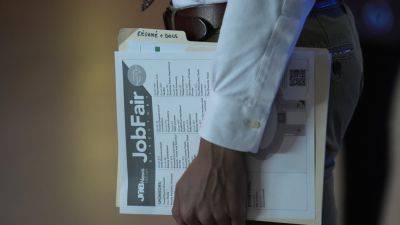Are greedy companies to blame for grocery inflation? We looked at the data
Are greedy corporations to blame for inflation?
Ariane Navarro thinks so. She recently pulled up her budgeting spreadsheets from 2021 and was shocked by how much her family's grocery bill has skyrocketed.
She's not imagining it: From February 2020 to this July, grocery prices grew a cumulative 25.6%. That's higher than overall inflation, which was 21.6% during that same period.
"We have no other choice — we have to buy groceries," says Navarro, who lives in Houston. "That's a basic need. And so [companies] use that to kind of take advantage and keep raising prices."
It's a widespread sentiment — and a popular political refrain ahead of the presidential election, as Vice President Harris pledges to crack down on "price gouging" on Day 1.
It doesn't help that corporate executives have spent recent years touting their pricing power on calls with investors, like when the CEO of Cottonelle-maker Kimberly-Clark, Mike Hsu, said last year: "If the price goes up on bath tissue, generally doesn't mean you're going to use the bathroom less." Many makers and sellers of home and pantry staples have reported record profits.
But just how much is this driving supermarket inflation? Data tells a messier story.
Costs have jumped for grocers and food manufacturers
There's no dispute that food sellers and manufacturers have passed costs on to consumers; they typically do, to varying degrees. And their costs increased substantially from the start of the coronavirus pandemic.
First came the crush of shoppers stockpiling groceries to prepare for lockdowns, right as operations slowed at meatpacking plants and transportation companies. Shipping bills skyrocketed. Workers fell ill; firms shelled out money for acrylic shields at cash registers and







